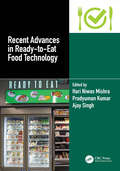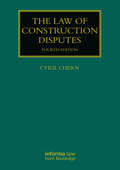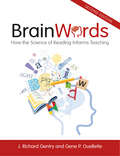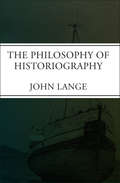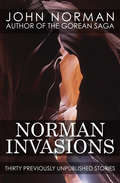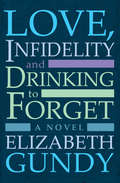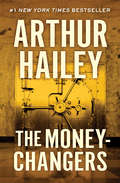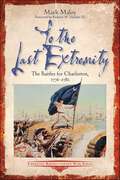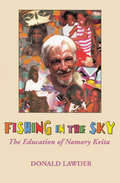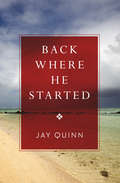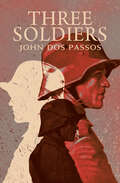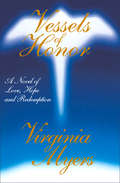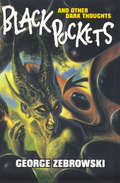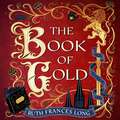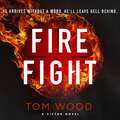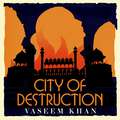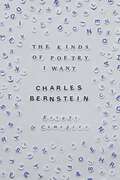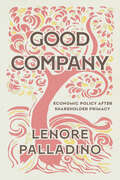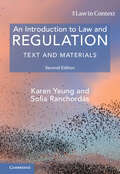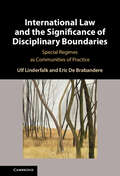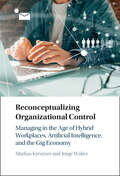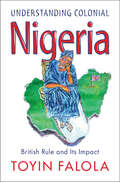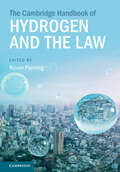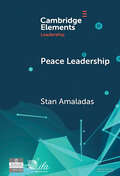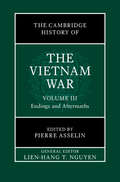- Table View
- List View
Recent Advances in Ready-to-Eat Food Technology
by Hari Niwas Mishra Pradyuman Kumar Ajay SinghReady-to-Eat (RTE) describes foods that need not be cooked, reheated, or otherwise prepared before consuming them. Recent Advances in Ready-to-Eat Food Technology covers all the aspects of RTE from statistics, method of production, mechanization, thermal and non-thermal processing, gluten-free, consumer behavior, control of foodborne illness and hygiene, packaging requirements, and improved functionalization to application of nanotechnology.Key Features: Covers the development of ready-to-eat products from meat, cereal, fruits, vegetables, dairy, and pulses Provides a global review of labeling and packaging for ready-to-eat products Discusses hygienic design and safety in the production and consumption, with an emphasis on pathogenicity issues Written by a team of well-recognized researchers who present the latest advances in RTE food product development, this book is of interest to industry professionals and academicians as well as to undergraduate students and postgraduate researchers.
The Law of Construction Disputes (Construction Practice Series)
by Cyril ChernUpdated throughout for this fourth edition, The Law of Construction Disputes maintains its position as a leading source of authoritative and detailed information on the whole area of construction law including contracts and their performance, third parties, pursuing claims and dispute resolution.The book covers the construction dispute process by analysing the main areas from which disputes arise, up-to-date case law, and how to effectively deal with construction project disputes once they have arisen. It provides the legal practitioner with all the case law needed in one concise volume, and examines the methods and methodology of construction law, not only for a common law context, but also under other legal systems. Readers will be guided through the various international contract formats governing construction alongside applicable case law. Additionally, they will be shown the correct contract provisions and forms used to prevent disputes from escalating to reach successful conclusions without litigation.Featuring expert advice and many relevant reference materials, this book is an extremely helpful guide to legal practitioners in this field of law and to construction professionals.
Brain Words: How the Science of Reading Informs Teaching
by J. Richard Gentry Gene P. Ouellette"Gentry and Ouellette are cannonballing into the reading research pool, they're making waves, and these waves are moving the field of reading forward."—From the foreword by Mark Weakland, Super Spellers"In this second edition, the authors have written a practical and fascinating resource that helps connect the theory and research of the neurological reading circuitry to classroom practice."—Molly Ness, teacher educator, author, consultantA lot has changed since the original publication of Brain Words. The first edition was very much a call for change, and change has indeed happened! While the science of reading has made real and substantive change within education, there unfortunately remain too many misunderstandings and misinterpretations of what the science of reading is, and stubborn resistance to all it has to offer. Now more than ever it is vital that we work towards an understanding of the science of reading and what it has to say about teaching our students how to read.Written for beginning or seasoned teachers, homeschoolers, teacher educators, as well as parents who want to fully engage in their child’s literacy development, this updated and highly readable new edition presents brain science, reading research, and theory in ways that can be understood and directly applied in teaching, ultimately leading to efficacious science of reading based literacy instruction.Gentry and Ouellette show how an understanding of the science of reading can shape teaching to help make all students literate. Building on their science of reading based framework of “brain words”—dictionaries in the brain where students store and access word spelling, pronunciation, and meaning—the authors offer a wealth of information to transform your thinking and practice. They offer: an updated review of models of reading, developmental theory, and brain research that help explain the reading brain a new exploration of how oral language provides the foundation for learning to read and write, and how elements of oral language directly contribute to literacy learning throughout the school years an evolving critique of classroom practices that aren't as effective as once believed explicit guidance on how spelling can be used to teach the critical skill of word reading a deepened understanding of dyslexia through the lens of the science of reading With the insights and strategies in Brain Words, you can meet your students where they are and ensure that more of them read well, think well, and write well.
The Philosophy of Historiography
by John LangeA philosophical examination of the study of history, from its logic and semantics to its metaphysical and epistemological implications. This book is intended for the highly intelligent reader, who is interested in considering the difficulties, problems, and challenges of understanding and writing about the human past. It is popularly enough written, hopefully, to be a joy to read, and scholarly enough to be seriously instructive. The book has two major purposes, first, to give a reader an extensive, detailed overview of the field as it currently exists, and, second, to considerably enlarge the field itself, as it is the first book in the area to consider not only the epistemology of the field, but, in detail, its logic and semantics, its metaphysics, its axiology and its aesthetics.
Norman Invasions: Thirty Previously Unpublished Stories
by John NormanThe creator of Gor delivers a wide-ranging story collection, all previously unpublished, with a handful of directly Gor-related pieces and several more stories that involve Gor-like female slavery and submission. Many of the stories are philosophical monologues which play with existential and phenomenal ideas by discussing their philosophical underpinnings and their relation to the real world as observed with a philosophical mind-set. They are often without dialogue or even characters, merely thoughts, descriptions and speculations. Some could almost be lectures given narrative form. Some stories are SF, some are horror, some have &“mainstream&” settings. Among the characters in the various stories are a couple of talking frogs, a couple of independently-thinking computers, a fair number of philosophers and a number of clinical psychologists or psychiatrists, often analyzing or counseling computers or intelligent alien lifeforms.
Love, Infidelity and Drinking To Forget
by Elizabeth GundySara and Daniel, two New Yorkers used to the buzz of the Big Apple and the Metropolitan Museum, pack their books and cats in a pickup and set off for the backwoods of Atlantic Canada, their lovely young heads filled with lovely rustic dreams.From the start, things go haywire and the homesteading couple discover Law #1 of the wilderness: Nature goes its way and folks go crazy. The process is alternately hilarious and devastating.The main catalysts are the splendid locals, who first appear as uproarious rednecks, but gradually emerge as very affecting characters in their own right. Another is a much longed-for baby, who crystallizes Sara and Daniel's feeling for each other and the land.At the center of the book is the story of what happens to the child–a stunning section of quiet, simple intense writing that goes straight to the heart of what love is all about.Gundy draws deeply on her readers feelings; she is a writer who can make you weep on one page and laugh hilariously on the next.LOVE, INFIDELITY AND DRINKING TO FORGET chronicles a spiritual change that resonates long after the last page."…a great pleasure. Elizabeth Gundy is such an intelligent and affecting writer. As she did in BLISS, she has created characters whose sorrows you suffer and whose joys you celebrate."–Hilma Wolitzer
The Moneychangers (The\story-tellers Ser.)
by Arthur HaileyThe #1 bestselling author of the blockbuster thrillers Airport and Hotel takes on the world of high finance: &“Cliched, lurid and utterly absorbing&” (Philip Hensher, The Guardian). Ben Roselli, president of First Mercantile American Bank and grandson of the founder, makes the shocking announcement that he&’s dying. With no offspring to inherit the company, Roselli knows that executive VPs Roscoe Heyward and Alex Vandervoort are the obvious candidates to succeed him. Heyward, who has been with First Mercantile for two decades, will do whatever it takes to bring in new clients and win the coveted presidency. Vandervoort, a newcomer from the Federal Reserve with a left-wing girlfriend, advocates for a socially responsible plan of growth. And now the discovery of counterfeit cash and credit card fraud threatens the future of the bank itself. From the day-to-day business dealings to the inner sanctums of the money trading center and the boardroom, Hailey&’s novel is a riveting tale of ambition, greed, and the US banking system.
To the Last Extremity: The Battles for Charleston, 1776–1782 (Emerging Revolutionary War Series)
by Mark MaloyJune 1776: Just a month before America declared its independence from Great Britain, a British fleet of warships and thousands of British soldiers appeared off the coast of Charleston, South Carolina. Following a brutal day-long battle, the most powerful navy in the world was bloodily repulsed by the Americans. In the spring of 1779, a British force brazenly marched up to Charleston from Savannah and tested the city’s defenses before falling back. Finally, in the spring of 1780, a massive British force returned to Charleston and laid siege to the city. This siege resulted in the worst defeat of the Revolutionary War for the Americans, as they lost the city and an entire army of nearly 6,000 men. After being conquered by the British, the citizens and soldiers suffered more than two years of occupation and imprisonment. However, the siege of Charleston marked the beginning of the end of the Revolutionary War. The fall of Charleston initiated a series of events that ultimately resulted with the American victory at Yorktown and the successful independence of the United States. Charleston, South Carolina is one of the most beautiful and historic cities in the United States. Numerous sites, battlefields, and buildings from the period of the Revolution still exist. In To the Last Extremity: The Battles for Charleston, historian Mark Maloy not only recounts the Revolutionary War history of Charleston, he takes you to the places where the history actually happened. He shows you where the outnumbered patriots beat back the most powerful navy in the world, where soldiers bravely defended the city in 1779 and 1780, and where thousands suffered under occupation. Through it all, brave patriots were willing to defend the city and their liberty “to the last extremity.”
Fishing in the Sky: The Education of Namory Keita
by Donald LawderWhat distinguishes this remarkable narrative from other accounts of personal growth is not just its vivid and intimate picture of West African life, but the fact that its author embarked on his adventure at an age when most men and women are resigned to life in a rocking chair. At age sixty-six, after the break-up of a stormy marriage, Donald Lawder begins a new life as a volunteer teacher for the Peace Corps in the impoverished country of Mali, in West Africa. He is adopted by a Moslem family, given a Malian name, and learns to pray in the village mosque. As "Professor of English" at the state teacher's college in Mali's capital city of Bamako, he teaches Debate, Black American History, and the philosophy of Emerson and Thoreau to French-speaking African students and becomes deeply involved with a Moslem student less than one third his age. Later, after a two-year job hunt in the U.S. convinces him that America is no country for old men, he returns to Bamako for good, as chief of an African family of six children ranging in age from three to twenty-three years. He arrives in time to witness his unarmed students' heroic overthrow of the brutal dictator Moussa Traore and their confused efforts to establish one of the first democracies in West Africa. An intimate and moving account of modern Africa in turmoil and of an old man's discovery of love in one of the poorest countries of the world.
Back Where He Started: A Novel
by Jay QuinnIn Back Where He Started, Chris Thayer finds himself packing up the last pieces of a quietly extraordinary life. After twenty-three years of marriage to Zack Ronan—and after raising the widower&’s three kids—Chris finds himself facing an uncertain second act. Seeking refuge in North Carolina&’s Outer Banks, Chris has to come to terms with his own empty nest and challenge himself to move forward with a new relationship. This is a subtle depiction of the meaning of family and motherhood, and of the search for your true soul. Jay Quinn&’s Lambda-nominated novels transcend traditional gay fiction, exploring universal issues of marriage, aging parents, addiction, and attraction, all while presenting unique characters and page-turning drama. Don&’t miss any of Quinn&’s novels: Metes and Bounds, Back Where He Started, The Good Neighbor, The Beloved Son, and The Boomerang Kid.
Three Soldiers (Barnes And Noble Library Of Essential Reading Ser.)
by John Dos PassosA grim portrait of World War I army life that set the standard for Hemingway, Mailer, and other acclaimed chroniclers of warfare. They come to the army from different Americas: Fuselli, a San Francisco store clerk bucking for promotion; Chrisfield, a laid-back Indiana farm boy; and Andrews, a Harvard graduate and promising New York City musician. In basic training, they are told it doesn&’t matter where a man is born or what he wants to be. The best soldiers are automatons. To be a perfect cog within a vast military machine is all his country asks of him. In the muddy fields and trenches of France, they learn the terrible meaning of their sacrifice: Once lost, a soldier&’s humanity can never be regained. Based on John Dos Passos&’s firsthand knowledge of the Great War, Three Soldiers is a grim and utterly realistic portrait of army life. A modernist masterpiece and a brave statement of fact in a time of sentiment, it set a standard that Hemingway, Jones, Mailer, O&’Brien, and every other chronicler of the American war experience has since tried to match. This ebook has been professionally proofread to ensure accuracy and readability on all devices.
Vessels of Honor: A Novel of Love, Hope, and Redemption
by Virginia MyersEveryone dreams of an idyllic life with fulfilling work and quiet retirement. This is exactly what the reverend John Leffingwell expected, but his world is turned upside down when his son is diagnosed with AIDS. The emotional and financial drain of his son&’s illness leads Reverend Leffingwell to a poor neighborhood in Seattle, where he finds crime, devastation, and most importantly, himself.
Black Pockets: And Other Dark Thoughts
by George ZebrowskiIn this masterful collection of horror stories, George Zebrowski divides these nineteen tales into personal, political, and metaphysical terrors—stories to scare you individually, stories to frighten you as a social animal, and stories that should terrify the entire human race. In &“I Walked with Fidel,&” a young man encounters a once politically powerful zombie; &“Jumper&” focuses on a young woman with a dark and troubled past, while in &“The Coming of Christ the Joker,&” the lighthearted banter of a celebrity TV talk show becomes something far more serious. &“A Piano Full of Dead Spiders&” is an eerie story of genius, its demands, and its delusions; in &“Passing Nights,&” the truth behind a recurring nightmare is revealed; &“The Soft Terrible Music&” depicts a man who must hide his past even from himself. And in the title story, the novella &“Black Pockets,&” Zebrowski asks: What happens to a man when his desire for revenge becomes all-consuming? With an introduction by Howard Waldrop and an afterword by the author, George Zebrowski reveals himself in Black Pockets and Other Dark Thoughts as a writer who can play on our more disturbing emotions even as he impels us to deeper thoughts.
The Book of Gold: the sweeping first book in The Feral Gods trilogy (The Feral Gods)
by Ruth Frances Long'History and enchantment woven in a seamless, intricate tapestry' Sarah Rees BrennanA desperate thief. A magical book. And a heist for the ages.There's only one thing notorious thief Lyta loves more than a big score: her little brother, Kit. But when Kit is arrested for producing seditious pamphlets, he stands to lose not only his printing press, but possibly his life.In exchange for her brother's freedom, Lyta strikes a daring bargain with the king -she will steal the infamous Book of Gold: a mysterious manuscript reputed to be hiding vast magical power within. It's just the kind of challenge Lyta relishes, but she didn't bargain for a secretive scholar, her brother's interference, or the return of handsome and brooding Captain Sylvian Chant, once her lover and partner in crime, now an incorruptible royal bodyguard . . .
Firefight: One hitman in the battle of his life (Victor #12)
by Tom WoodMERCY HAS A COST. TIME FOR VICTOR TO PAY.Assassin-for-hire Victor is in Bucharest, Romania, to kill two targets meeting to exchange stolen intelligence his client wants back. It should be a simple task - until he realises the second of his targets is a former ally. Even for a man of Victor's twisted morality, he's not prepared to kill someone to whom he owes his life. To atone for not completing the job, Victor agrees to take on the kind of dangerous assignment he would otherwise avoid. At a conference on international relations, he must identify and assassinate a killer just like him and remain unseen, despite a guest list of spies, dignitaries, and security experts. Even for an elite professional, the job is a tall order - which is why he looks for help from the person whose life he spared in Romania. Yet unbeknownst to Victor, the Bucharest contract stepped on the toes of powerful enemies from his past; enemies who now know exactly where to find him . . .
City of Destruction: The gripping and unputdownable new Malabar House mystery (The Malabar House Series)
by Vaseem Khan'Vaseem Khan writes with charm and wit, and an eye for detail that transports the reader entirely. I couldn't love this series more' CHRIS WHITAKER'Historical fiction at its finest' MAIL ON SUNDAYFrom the award-winning author of MIDNIGHT AT MALABAR HOUSE and THE LOST MAN OF BOMBAY comes a brilliant new mystery featuring the inimitable Persis Wadia.Bombay, 1951. A political rally ends in tragedy when India's first female police detective, Persis Wadia, kills a lone gunman as he attempts to assassinate the divisive new defence minister, a man calling for war with India's new post-Independence neighbours. With the Malabar House team tasked to hunt down the assassin's co-conspirators - aided by agents from Britain's MI6 security service - Persis is quickly relegated to the sidelines. But then she is given a second case, the burned body of an unidentified white man found on a Bombay beach. As she pursues both investigations - with and without official sanction - she soon finds herself headed to the country's capital, New Delhi, a city where ancient and modern India openly clash. Meanwhile, Persis's colleague, Scotland Yard criminalist Archie Blackfinch, lies in a hospital fighting for his life as all around him the country tears itself apart in the prelude to war...
The Kinds of Poetry I Want: Essays & Comedies
by Charles BernsteinA celebration of the radical poetics of invention from Charles Bernstein. For more than four decades, Charles Bernstein has been at the forefront of experimental poetry, ever reaching for a radical poetics that defies schools, periods, and cultural institutions. The Kinds of Poetry I Want is a celebration of invention and includes not only poetry but also essays on aesthetics and literary studies, interviews with other poets, autobiographical sketches, and more. At once a dialogic novel, long poem, and grand opera, The Kinds of Poetry I Want arrives amid renewed attacks on humanistic expression. In his polemical, humorous style, Bernstein faces these challenges head-on and affirms the enduring vitality and attraction of poetry, poetics, and literary criticism.
Good Company: Economic Policy after Shareholder Primacy
by Lenore PalladinoOn the faulty intellectual origins of shareholder primacy—and how policy can win back what’s been lost. In an era of shareholder primacy, share price is king. Businesses operate with short-term goals to deliver profits to shareholders, enjoying stability (and bonuses) in the process. While the public bemoans the doctrine for its insularity and wealth-consolidating effects, its influence over corporate governance persists. Good Company offers an exacting argument for why shareholder primacy was never the right model to follow for truly understanding how corporations operate. Lenore Palladino shows that corporations draw power from public charters—agreements that allow corporations to enjoy all manner of operational benefits. In return, companies are meant to innovate for the betterment of the societies that support them. However, that debt—increasingly wielded for stock buybacks and shareholder bonuses—is not being repaid. Palladino theorizes a modern corporation that plays its intended role while delivering social and economic good in the process and offers tangible policy solutions to make this a reality. Good Company is both an expert introduction to the political economy of the firm—as it was, as it is, as it can be—and a calibrating examination of how public policy can shape companies, and societies, for the better.
An Introduction to Law and Regulation: Text and Materials (Law in Context)
by Karen Yeung Sofia RanchordásContemporary life relies on regulation. The quality and safety of the water we drink, the food we eat, and the social media applications we use are all governed by multiple regulatory regimes. Although rooted in law, regulation is a multidisciplinary endeavour. Debates about regulation, particularly in the face of rapid change and the emergence of new 'risks', are now commonplace. Despite extensive scholarship, regulation is often poorly understood, even by policy-makers, with unintended and even disastrous consequences. This book offers a critical introduction to core theories, concepts, methods, tools, and techniques of regulation, including regulatory policy, instruments, enforcement, compliance, accountability and legitimacy. Weaving extracts from texts drawn from many disciplines with accessible commentary, it introduces this important field to students, scholars, and practitioners in a scholarly yet accessible and engaging manner with discussion questions and additional readings for those seeking to deepen their knowledge.
International Law and the Significance of Disciplinary Boundaries: Special Regimes as Communities of Practice
by Ulf Linderfalk Eric De BrabandereOver the last thirty or so years, international law and legal practice have become increasingly more specialized and diversified. These developments come with an increasingly divergent legal practice, in what has been coined as 'special regimes'. This book proposes a new understanding of the concept of a special regime to explain why specialists in different fields of international law do similar things differently. It argues that special regimes are best conceived as communities of practice, in the sense of Etienne Wenger's theory of communities of practice. It explores how the theory of communities of practice translates to the context of international law and the concept of a special regime. The authors draw up an innovative methodology to investigate their theory, focused on the conduct of community members, and apply this method to selected case studies, offering an original approach to the understanding of the special regimes in international law.
Reconceptualizing Organizational Control: Managing in the Age of Hybrid Workplaces, Artificial Intelligence, and the Gig Economy
by Markus Kreutzer Jorge WalterOrganizational control addresses the fundamental yet vexing managerial problem of aligning workers' capabilities, activities, and performance with organizational goals and aspirations. In recent years, the onset of COVID-19, combined with new developments in information and communication technologies, has brought about profound changes in organizations, and even in the nature of work itself. We have seen surges in virtual and remote work; progression of alternative work arrangements (especially in the gig economy); and an increasingly wide-spread reliance on algorithmic monitoring and control. These changes have exacerbated the tension between the pursuit of individual and organizational interests, exposing the limits of traditional approaches to organizational control, and questioning whether they still reflect contemporary organizational realities. Providing a comprehensive discussion of the multi-disciplinary approaches to organizational control, this book integrates the new and evolving trends in technology, organizations, and society into a reconceptualization of organizational control for twenty-first-century organizations.
Understanding Colonial Nigeria: British Rule and Its Impact
by Toyin FalolaIn this landmark new history, Toyin Falola analyses the impact of Britain's colonization of Nigeria from the late nineteenth century to 1960, when the country regained independence. Falola covers major events in depth, from the initial conquest and denial of Indigenous sovereignty, to the emergence and functioning of the colonial state, and later nationalist movements, offering fascinating insights into labour and trade relations, regionalism and nationalism, and Nigeria's role during the First and Second World Wars. Understanding Colonial Nigeria assesses the economic, political, social, and cultural changes that culminated in the emergence of a coalition of diverse groups agitating for the end of colonial rule from the 1940s – from labor coalitions and politicians to youth groups and market women. From the country's borders and state structure, to the present conflicts, Falola powerfully reflects on the lasting consequences of British intervention in the affairs of Nigerian states and communities.
The Cambridge Handbook of Hydrogen and the Law (Cambridge Law Handbooks)
by Ruven FlemingThe Cambridge Handbook of Hydrogen and the Law is the first comprehensive reference work on the regulation of this key area in the energy transition. It is global in scope, featuring chapters that explain the legal situation on hydrogen regulation in Europe, the USA, Latin America, Oceania, the Middle East / North Africa, and Southeast Asia. It includes chapters covering all relevant legal aspects of the hydrogen value chain from production to end use, making it the first in-depth work on the interplay of hydrogen and the law. Leading scholars and practitioners discuss the creation of hydrogen markets, the role of local authorities, sustainability and public participation in hydrogen regulation, the permitting regimes for electrolysers, offshore hydrogen, the regulation on hydrogen transportation and storage, indigenous perspectives on hydrogen, the regulation of hydrogen in heating and the regulation of electricity storage in the form of hydrogen. This title is also available as Open Access on Cambridge Core.
Peace Leadership: A Story of Peace Dwelling (Elements in Leadership)
by Stan AmaladasPeace dwelling is formulated as a reciprocal relationship among four interrelated ways of 'Being': Being a Guardian, Being a Curator, Being a Welcoming Presence, and Being a Neighbour. These ways of 'Being' are connected to a systemic reconstruction of Burns' formulation of the essential task of leadership, which encompasses the interconnectedness among the affairs of the Head (consciousness raising because values exist only where there is consciousness), the Heart (feeling the need to meaningfully define values, because where nothing is felt, nothing matters), the Hands (purposeful action) and the Holy (treating persons like persons as a non-negotiable and sacred practice, while believing that all persons can be lifted into their better selves). Corresponding to the four ways of Being, Peace Leadership is interpreted as the art of learning how to properly integrate the affairs of 4-Hs into our own shared lived existence for the sake of dwelling in peace.
The Cambridge History of the Vietnam War: Volume 3, Endings and Aftermaths (The Cambridge History of the Vietnam War)
by Pierre Asselin Nguyen, Lien-Hang T.The third and final volume of The Cambridge History of the Vietnam War examines key domestic, regional, and international developments in the period before and after the war's end, including its legal, environmental, and memorial legacies. The latter stages of the Vietnam War witnessed its apex as a Cold War crucible. The Sino-Soviet dispute, Sino-American rapprochement, Soviet-American détente, and global counter-culturalism served in various ways to elevate the already high profile and importance of the conflict, as did its expansion into Cambodia and Laos. After the “fall” of Saigon to communist-led forces and Vietnam's formal reunification in 1975-76, Hanoi's persecution of former enemies, discrimination against ethnic Chinese, and economic mismanagement triggered a massive migratory crisis that redefined international refugee policies. In time, the migration changed the demographic landscape of cities across North America and Europe and continued to impact our world long after the conflict ended.
